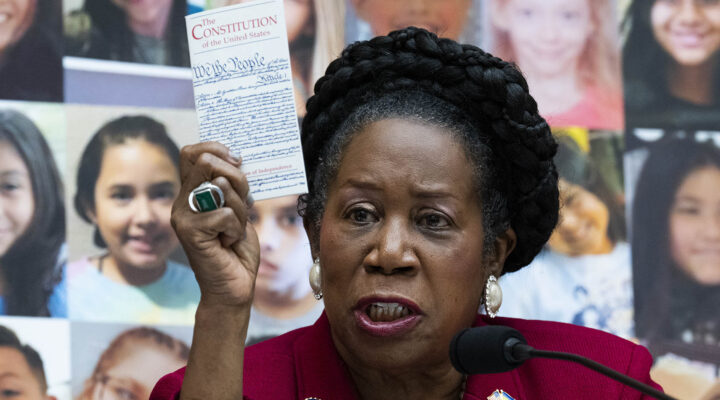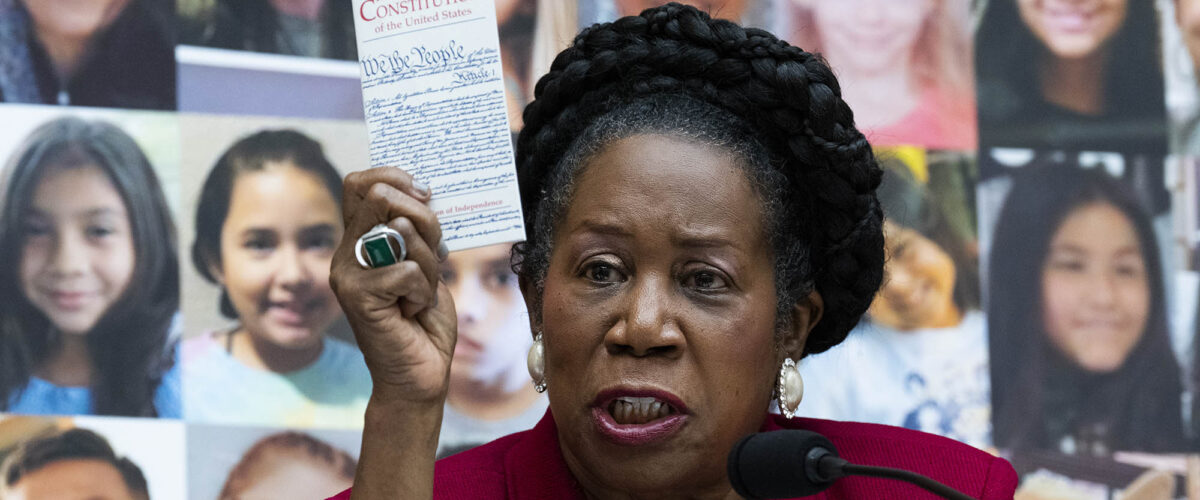Dear church,
Today I write to you from three places in my soul: parent, prophet and pastor.
Like many Texas parents, I had a momentary flash of panic last Tuesday. I opened my news app on the way to pick up my children and saw “Breaking News: Shooting in Texas Elementary School.” My children’s school district police greeted parents as we pulled into the circle, simultaneously comforting and gut-wrenching. My children climbed into my car as families 260 miles away waited for their loved ones to be located, for bodies to be identified.

Hannah Coe
I collected myself before my children got in the car and when I tucked them into bed Tuesday night. When I tried to sleep, sobs came from deep in my belly. I sat on the couch into the wee hours of the morning. My pastor peer group shared our prayers and support via text with our group member, a bivocational pastor and chaplain, who cared overnight for shooting survivors and their families on a trauma unit in a San Antonio hospital.
Morning came and it was time to somehow send our children to school. When I walked our youngest into school, her teacher locked eyes with me as she took my child’s hand and said, “We got her, Mama.” I made it to the car and sobbed.
On our nightly walks last week, my husband and I wept and prepared to have the most difficult conversation we’ve had with our elementary-aged children. We shared our carefully planned words with them over dinner, not too close to bedtime. Our daughter asked, “Mama and Daddy, will this happen to me?”
“We follow the recommendation to assure our children of their safety, and we feel like we are lying.”
Families with children are hurting
I share this with you because families with children are hurting. Parents are comforting crying and anxious children. Parents are getting in extra kisses before school and summer camp in case they are the last ones. Parents are finding private spaces to weep and mourn so as not to upset their children. We feel helpless, sad and furious. We follow the recommendation to assure our children of their safety, and we feel like we are lying.
We are exhausted from simultaneously shielding our children from many dangers and teaching them skills for navigating the world they live in; we feel powerless and afraid when the dangers outpace their skills.
The prophet in me hears the Scriptures in which God refuses to accept empty words and unjust sacrifices. How can we pray “Lord, have mercy” when God demands justice? “Lord, forgive us” when God demands repentance? How many more humans will die at school, in the grocery store, at church while we ask God to send help?
God already has sent the help. No one else is coming. We are the help.
Anne Lamott wrote last week that, “We see Christ crucified in Texas” and I wonder how many more crucifixions, how much blood sacrifice will it take for us to repent and choose justice.
I wonder how many more crucifixions, how much blood sacrifice will it take for us to repent and choose justice.
What Jesus teaches us
As a pastor, the collective grief and anger are palpable. I hear the anger, blaming, fear, division and sadness.
Our Lord Jesus teaches us the only way is through. To bypass the negative aspects of this moment adds to our moral injury and collective pain.
Our Lord Jesus demonstrates the sacred and necessary task of letting this pain into our bodies and our hearts and our lives. We must feel the deep risk of love and belonging and the sin of allowing violence to rip apart our communities.
Our Lord Jesus shows us how to face death for the sake of divine love and how new life springs forth from black holes of hopelessness. We must examine what needs to die in us, what needs to be transformed in God, so that we are reborn into love and not overcome by toxic hate.
Our Lord Jesus has given us each other and the gift of the Spirit. We must hold each other close, bear one another’s burdens and courageously follow the Spirit.
Reflecting on 15 years in ministry
For me, these threads of parent, pastor and prophet weave together in ways difficult to separate. My oldest daughter was born on the day of a mass shooting in a Colorado theater. Later that year, I rocked her to sleep in her nursery as I counseled parents and parishioners on the phone shattered by the Sandy Hook elementary school shooting in which 20 children and six adults were killed in a matter of minutes. “Do we really believe those babies are in hell if they were not baptized?” “How could God let this happen?”
Reflecting on the last 15 years in ministry with children and youth, I find these conversations are a regular occurrence. Gun violence is now the leading cause of death for kids and teens.
“Gun violence is now the leading cause of death for kids and teens.”
Even more disturbing is the truth that minority children in our country are disproportionately affected by gun violence. Black children are 10 times more likely to die from gun violence than white children. Even as I grapple with repetitive violence, I can’t help but think of parents and communities carrying 10 times the burden of fear and helplessness.
Whether we want to believe it or not, our young people are daily confronted by a violent and fragmented reality, intensified by the pandemic. It is no wonder their mental health is tanking.
‘Do something!’
As President Biden left mass in Uvalde last Sunday, a person shouted, “Do something!”
Church, the truth is that something can be done to repent and heal from violence. Part of what needs to be done relates to public policy. We prefer to think of Jesus as apolitical. The good and bad news are the same: this is inaccurate. The word “politics” comes from the Greek word polis, which generally refers to matters of the city. Basic human flourishing in community. These were precisely Jesus’ concerns. These must be our concerns as well.
There is political work to be done by all of us, and 20 years from now we need to still be doing the work. We must refuse to settle for what Langston Hughes called a “lousy peace.” We must find ways to work together to address our country’s problem with gun violence; our neglect of children’s nutrition, access to quality child care, mental health care, education and physical health care; and our denial of racialized realities. The work of justice is directly tied to “matters of the city” and requires our lifelong engagement as informed citizens of faith bringing Christ’s love to bear in our political engagement.
At the same time, let us not neglect the church’s irreplaceable role in the spiritual nurturing of our communities, a need that never can be fully met by public policy. Let us not forego the opportunity to embrace, to repent, to speak a hopeful future into being, to love, to call, to nurture, to disciple, to be healed and transformed in Jesus’ name.
“Let us not neglect the church’s irreplaceable role in the spiritual nurturing of our communities, a need that never can be fully met by public policy.”
Last Sunday, our congregation stood in a circle to pray. Our young people stood just inside the circle in front of their parents. We held candles for each person who died in the Uvalde, Buffalo and Laguna Woods shootings. We spoke the truth to each other and God. We encircled our young people in loving community.
Church, there is much we can do to speak the truth and embrace our young people in loving community.
Over the last week, I’ve begun my prayers by reading Langston Hughes’ Kids Who Die. I share these words with you in closing:
Listen, kids who die —
Maybe, now, there will be no monument for you
Except in our hearts
Maybe your bodies’ll be lost in a swamp
Or a prison grave, or the potter’s field,
Or the rivers where you’re drowned …
But the day will come —
You are sure yourselves that it is coming —
When the marching feet of the masses
Will raise for you a living monument of love,
And joy, and laughter,
And black hands and white hands clasped as one,
And a song that reaches the sky —
The song of the life triumphant
Through the kids who die.
The time is now for us to use our marching feet to raise living monuments of love for our children, especially those most vulnerable to our broken and corrupt systems. The time is now to do something in the name of Jesus Christ. I don’t want any more kids to die.
Hannah Coe serves as senior pastor of Calvary Baptist Church in Waco, Texas.
Related articles:
After Uvalde, let us dream of impossible things | Opinion by Andrew Manis
Guns, the elders and the children | Opinion by Susan K. Smith
When you’re tempted to forget about the latest school shooting, remember the embalmers | Opinion by Harold Ivan Smith


